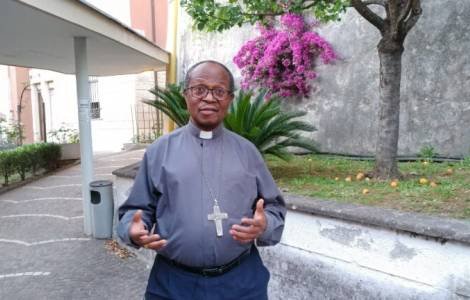Africa/Mozambique – President of the Anglican Church: “I hope that the elections will be free, fair and peaceful.”
consolata america
MAPUTO (Agenzia Fides) – “I hope that the elections will be free, fair and above all peaceful,” Inácio Saule, president of the Anglican Church of Mozambique and archbishop of Nampula, said in an interview with Fidesz newspaper. spoke.
Today, October 9th, presidential and parliamentary elections will be held in the southern African country. No big surprises are expected. FRELIMO (National Liberation Front), which has been in power since independence in 1975, is expected to win this election again.
Mozambique, created in 1992 from a civil war that erupted in 1975, has been battling jihadi militias in the country’s northernmost province of Cabo Delgago for several years (see Fidesz, October 19, 2022).
We asked Archbishop Saule to analyze the situation in the country in light of today’s elections.
What do you expect from today’s election?
First and foremost, I hope that elections will be held freely, fairly, and above all peacefully. Preparation presented some challenges. We are aware that there are delays and problems with registering on the electoral register, not only due to bureaucratic issues but also perhaps other political issues. Let’s say that there was no interest in certain people being on the electoral register. There is also a degree of fatigue and disappointment among voters, as the first free elections were held 30 years ago in 1994 and elections have been fraught with controversy and protests ever since.
The war in the north is believed to be caused by the presence of at least one jihadist group. Isn’t this reading a bit too simplistic?
We say the jihadists are to blame, but we don’t think they are the only cause of this war. This region has resources, primarily gas, but not only. Barama has mines containing strategic minerals such as graphite, which are essential for new technologies and the energy transition. So we don’t know exactly what the real cause of this war is. Is it just a religious thing? i don’t think so. Meanwhile, conflict erupted almost simultaneously with the start of gas extraction.
You are the Archbishop of Nampula and have hosted several internally displaced persons due to the war. Could you please explain their situation?
After Cabo Delgado, the capital of the province where the war is mainly fought, Nampula is the province that receives most of the refugees fleeing the violence. This is a challenge because Nampula is the most densely populated province in the country and the sudden influx of thousands of people is causing problems in the fabric of the region. When the first refugees first arrived, several international organizations provided assistance. But then aid was drastically reduced. They increasingly forgot about us and the more than 6,000 refugees still housed in Nampula. There were initially as many as 8,000 people, but some have returned to Cabo Delgado, and many remain from surrounding villages due to the security situation.
As a Church, we are committed to supporting these people through Caritas in our diocese and nationally. The problem is that there aren’t enough resources, especially since international aid has all but disappeared.
Is there a risk that the conflict in the north will spread to other parts of Mozambique?
Although much of Mozambique is peaceful, instability in the north threatens to spread to other parts of the country, exacerbating deep poverty, especially among unemployed young people, especially in urban areas.
Another big problem is widespread poverty…
Yes, especially among young people. Many young people have moved from the countryside to the city, but are unable to find work there. This is a major challenge, especially at the pastoral level. Ideally, these people should be provided with vocational training opportunities. But the church alone does not have the means to do this. During our last visit to Adrimina, Pope Francis also encouraged us not to forget young people and to provide them with a training ground. During this year’s visit, I pointed out to the Pope the difficulties in supporting the vocational training of young people, as the Mozambican Church does not have the means to do so. We are trying to do everything we can, but our means are actually very limited.
On the other hand, Catholic schools are highly regarded for the quality of their education. However, the state raised taxes on schools and made them comparable to private businesses. As a result, we are in trouble.
What do you think about the situation of the church in Mozambique as it faces these problems?
It is a living church. We have many vocations and our seminaries are full. This is truly a blessing. Young people come to church in droves. Most of our priests are Mozambicans. Some priests go as missionaries to other African countries.
Furthermore, the role of the laity is extremely important, as the National Pastoral Assembly decided in 1977 to promote lay churches. In this respect, catechists play an important role, especially in villages where there is no permanent priest. (LM) (Agenzia Fides, September 10, 2024)

